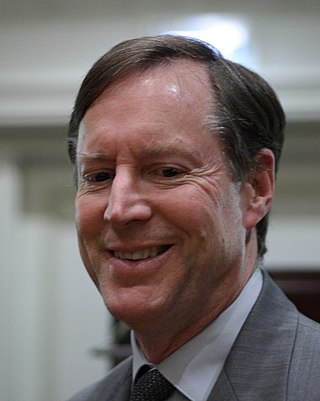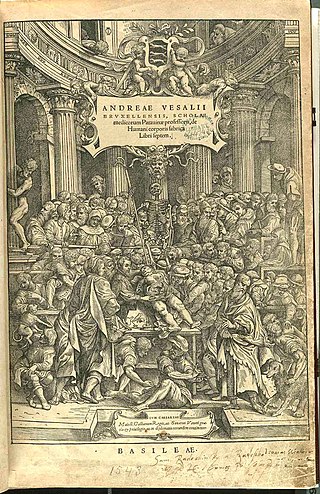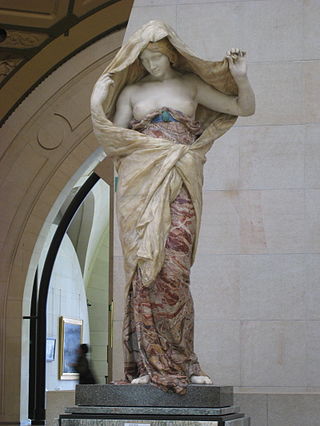Katharine Park is an American historian of science. She is the Samuel Zemurray, Jr. and Doris Zemurray Stone Radcliffe Professor of the History of Science emerita at Harvard University. She specializes in the history of gender, sexuality, and the female body in medieval and Renaissance Europe, as well as categories and practices of experience and observation in the Middle Ages. Park was awarded a Marshall Scholarship in 1974. She received her M.Phil in the Combined Historical Studies of the Renaissance at the Warburg Institute, University of London, and earned a Ph.D. in the History of Science at Harvard in 1981. [1]
Wonders of Nature, which she co-authored with Lorraine Daston, won the Pfizer Award of the History of Science Society for the best book in the history of science in 1999; the book was translated into Italian and German. [2]
In 2002, Park was elected to the American Academy of Arts and Sciences. [3]
Her book Secrets of Women: Gender, Generation, and the Origins of Human Dissection (2006) won the Margaret W. Rossiter History of Women in Science Prize in 2007 [4] and the American Association for the History of Medicine William H. Welch Medal in 2009. [1] [5] In 2021 she was awarded the Dan David Prize. [6]

The preternatural is that which appears outside, beside or beyond the natural. It is "suspended between the mundane and the miraculous".

Cosimo II de' Medici was Grand Duke of Tuscany from 1609 until his death. He was the elder son of Ferdinando I de' Medici, Grand Duke of Tuscany, and Christina of Lorraine.

Peter Louis Galison is an American historian and philosopher of science. He is the Joseph Pellegrino University Professor in history of science and physics at Harvard University.

Hans Burgkmair the Elder (1473–1531) was a German painter and woodcut printmaker.

The presence of women in science spans the earliest times of the history of science wherein they have made significant contributions. Historians with an interest in gender and science have researched the scientific endeavors and accomplishments of women, the barriers they have faced, and the strategies implemented to have their work peer-reviewed and accepted in major scientific journals and other publications. The historical, critical, and sociological study of these issues has become an academic discipline in its own right.

Londa Schiebinger is the John L. Hinds Professor of History of Science, Department of History, and by courtesy the d-school, Stanford University. She received her Ph.D. from Harvard University in 1984. An international authority on the theory, practice, and history of gender and intersectionality in science, technology, and medicine, she is the founding Director of Gendered Innovations in Science, Medicine, Engineering, and Environment. She is an elected member of the American Academy of Arts and Sciences. Schiebinger received honorary doctorates from the Vrije Universiteit Brussel, Belgium (2013), from the Faculty of Science, Lund University, Sweden (2017), and from Universitat de València, Spain (2018). She was the first woman in the field of History to win the prestigious Alexander von Humboldt Research Prize in 1999.

Theodore M. Porter is a historian of science emeritus in the Department of History at UCLA. He is known for his histories of statistical thinking and quantification, particularly the sociology of quantification.

The George Sarton Medal is the most prestigious award given by the History of Science Society. It has been awarded annually since 1955. It is awarded to a historian of science from the international community who became distinguished for "a lifetime of scholarly achievement" in the field.

Lorraine Jenifer Daston is an American historian of science. She is director emerita of the Max Planck Institute for the History of Science (MPIWG) in Berlin, visiting professor in the Committee on Social Thought at the University of Chicago, and an authority on early modern Europe's scientific and intellectual history. In 1993, she was named a fellow of the American Academy of Arts and Sciences. She is a permanent fellow at the Berlin Institute for Advanced Study.

The Medical Renaissance, from around 1400 to 1700 CE, was a period of progress in European medical knowledge, with renewed interest in the ideas of the ancient Greek, Roman civilizations and Islamic medicine, following the translation into Medieval Latin of many works from these societies. Medical discoveries during the Medical Renaissance are credited with paving the way for modern medicine.
The Pfizer Award is awarded annually by the History of Science Society "in recognition of an outstanding book dealing with the history of science" that was "published in English during a period of three calendar years immediately preceding the year of competition."
Historia animalium, published in Zurich in 1551–1558 and 1587, is an encyclopedic "inventory of renaissance zoology" by Conrad Gessner (1516–1565). Gessner was a medical doctor and professor at the Carolinum in Zürich, the precursor of the University of Zurich. The Historia animalium, after Aristotle's work of the same name, is the first modern zoological work that attempts to describe all the animals known, and the first bibliography of natural history writings. The five volumes of natural history of animals cover more than 4500 pages. The animals are presented in alphabetical order, marking the change from Middle Ages encyclopedias, or "mirrors" to a modern view of a consultation work.

Nature Unveiling Herself Before Science is an allegorical sculpture created in 1899 in the Art Nouveau style by Louis-Ernest Barrias. The sculpture depicts a woman—personifying Nature—removing a veil to reveal her face and bare breasts. The sculpture, which is in the Musée d'Orsay, was commissioned for the Conservatoire National des Arts et Métiers. Underneath the veil, Nature wears a gown held up by a scarab. The figure is made of marble, with the gown made of Algerian onyx, and the scarab of malachite. The sculpture has also been reproduced in other media.
Margaret W. Rossiter is an American historian of science, and Marie Underhill Noll Professor of History of Science Emerita of the History of Science, at Cornell University. Rossiter coined the term Matilda effect for the systematic suppression of information about women in the history of science, and the denial of the contribution of women scientists in research, whose work is often attributed to their male colleagues.
Ann M. Blair is an American historian, and the Carl H. Pforzheimer University Professor at Harvard University. She specializes in the cultural and intellectual history of early modern Europe, with an emphasis on France. Her interests include the history of the book and of reading, the history of the disciplines and of scholarship, and the history of interactions between science and religion. She is most widely known for being the author of the bestselling book Too Much to Know: Managing Scholarly Information before the Modern Age (2010). Blair was elected to the American Philosophical Society in 2009. She also serves on the Editorial Board of the Journal of the History of Ideas.
The Margaret W. Rossiter History of Women in Science Prize is awarded by the History of Science Society for an outstanding book or article on the history of women in science. It is named after Professor Margaret W. Rossiter, a pioneer in the field of the role of women in science.
Joan Cadden is Professor Emerita of medieval history and literature in the History Department of the University of California, Davis. She served as president of the History of Science Society (HSS) from 2006 to 2007. She has written extensively on gender and sexuality in medieval science and medicine. Her book Meanings of Sex Difference in the Middle Ages: Medicine, Science, and Culture (1993) received the Pfizer Award in 1994, from the History of Science Society, as the outstanding book on the history of science.

The Monster of Ravenna was a possibly apocryphal late Renaissance-era monstrous birth whose appearance in early 1512 near the city of Ravenna was widely reported in contemporary European pamphlets and diaries. Images of its grotesque features were interpreted symbolically by opponents of both the Catholic Church and the Protestant Reformation, although a more common explanation at the time was that the beast was an omen regarding the outcome of the Battle of Ravenna (1512). Modern medical consensus identifies the monster as a child with some variety of severe congenital disorder.
James (Jim) Andrew Secord is an American-born historian of science. He was a professor of history and philosophy of science within the Department of History and Philosophy of Science at the University of Cambridge, and a fellow of Christ's College. He was also the director of the project to publish the complete Correspondence of Charles Darwin. Secord is especially well known for Victorian Sensation, his award-winning study of the reception of the anonymous Vestiges of the Natural History of Creation, a pioneering evolutionary book first published in 1844. In 2020 he was elected as a Fellow of the British Academy.
Kara W. Swanson is a professor at Northeastern University School of Law. She is known for her work as a legal practitioner who works in intersections of gender and sexuality, property law, race and racism, and the history of science, medicine, and technology.